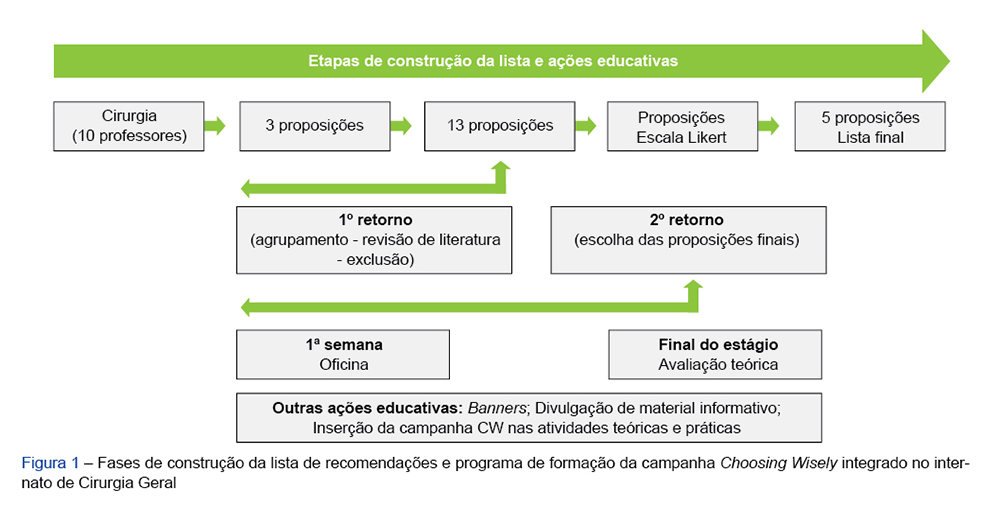SOCIAL MEDIA
Portuguese Medical Association's Scientific Journal

Introduction: The practice of unnecessary conduct and waste in Health is an important topic, not often addressed during undergraduate training. Medical education has a fundamental role in student and doctors’ training concerning cost-conscious attitudes for good health care. The aim of this study was to describe and assess the implementation of the Choosing Wisely campaign within a General Surgery residency program.
Material and Methods: This was an interventional study involving residency advisors and specialty residents. Recommendations based on three procedures frequently used in clinical practice, with no benefits and involving unnecessary risks for patients were identified by residency advisors with the use of the Delphi method and were grouped by frequency and by nature according to the Choosing Wisely layout. Educational actions such as workshops and banner advertising in addition to training activities regarding cost-conscious healthcare were carried out. This subject was also included in the theoretical evaluation of the residency program.
Results: The leading five recommendations were related to (i) computed tomography overuse (versus ultrasound imaging) in patients with suspected acute appendicitis, (ii) multithreaded computed tomography overuse in patients with low-risk trauma, (iii) longer than recommended antibiotic prophylaxis in surgical patients, (iv) longer than recommended preoperative fasting period and (v) upper gastrointestinal endoscopy overuse in surgical patients without an adequate clinical evidence or without the presence of warning signs. Awareness and reflection among participants were improved, leading to high grades in final evaluation.
Discussion: Changes in training regarding quality of care and cost awareness should start throughout undergraduate training, within a learning environment focused on a reflective and evidence-based practice. All the benefits and harms to patients were taken into account in the recommendations that emerged from this study.
Conclusion: The inclusion of this initiative in the General Surgery residency, involving reflective discussions on campaign recommendations regarding procedures frequently used in clinical practice, with no benefits and involving unnecessary risks for patients may lead to more cost-conscious procedures.